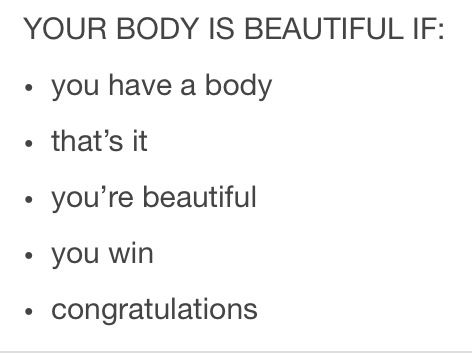@Ganymede said in What do you eat?:
@Kestrel
What about allergies? I am allergic to nuts and legumes. This precludes a vegetarian or vegan lifestyle, as far as I can tell.
If you’ve research to prove otherwise, I’d like to make a change. Also, I live non-carb.
I concede it'd be pretty difficult to make balanced vegan meals with a nut + legume allergy because that's my main protein source, personally.
Can I ask why you live non-carb? If it's for health reasons, I know the keto movement is based on some really bad science. People who eat three or more servings of wholegrains a day live longer, have slimmer waistlines, lower blood pressure, and lower incidences of heart disease and type 2 diabetes. (Source 1, Source 2) The effect of adding whole grains to a heart patient's diet has been found to be even more effective than statins and other commonly prescribed drugs.
Carbs are good for you. Though it's worth making the distinction between highly processed simple starches vs. complex carbs, fruits and vegetables, which are full of beneficial phytonutrients.
I recommend the Netflix documentaries What the Health and Forks Over Knives for a basic primer. Also the books The China Study and How Not to Die. Both are authored by medical doctors and nutrition experts who have conducted extensive research on the topic; and both include an extensive bibliography section for the sources.
In terms of why animal products are bad for you, the most comprehensive study on the topic (that I know about) is the aptly named EPIC study. (European Prospective Investigation into Cancer and Nutrition.) It followed more than half a million participants from 10 European countries over 15 years and crunched the numbers on a fairly wide variety of topics. It would be quite exhaustive to link them all but here are a few choice selections:
One thing I found interesting about the EPIC study is that it proved that all animal protein, and not just processed red meat as is often the fixation, raises the risk of chronic diseases and shortens life expectancy across the board. This includes poultry, fish and dairy.
The China Study did something similar focusing on Eastern populations. It was funded in joint by Oxford University, Cornell University and the Government of China in the 1980s. Because the EPIC study is more recent, I generally prefer to cite that, but the China Study really paved the way and remains one of the most important nutritional studies of its time, or IMO, any time.
Research in the Blue Zones, such as the Okinawa Centenarian Study, has also provided groundbreaking results worth looking into. (Comprehensive study on the topic.) "Blue Zones" is a term for various regions across the globe where humans live longer than anywhere else, specifically to over 100 years old. These include Okinawa, Japan; Sardinia, Italy; Nicoya, Costa Rica; Icaria, Greece; and the Seventh Day Adventists of Loma Linda, California. These areas are not necessarily wealthier than other parts of the world, or even local counterparts. In some cases, it's in fact their isolation from the rest of the world that has in a sense "protected" them from assimilating unhealthier global trends and helped preserve their healthier cultural habits. Some common factors were found across these populations, and not all of them are dietary: a strong emphasis on local community, approximately 30 minutes of light exercise a day (such as communal dancing and brisk walking); and of the dietary factors, not all are related to vegetarianism. Across the board they all place emphasis on the importance of eating fermented food, have a relatively low caloric intake, and so for example Okinawan gut microbiomes are significantly more diverse than those of Western populations. (See also: more general source on probiotics and longevity.) But the fact that all Blue Zones also happen to be largely vegan, vegetarian, or pescetarian (with typically less than 2% of calories coming from meat/fish) can't be playing a small part.
In recent years as Okinawan diets have become more Westernised and meat/fish intake has increased, the life expectancy of younger generations has shortened. (Source.)
So that's the science. There is a lot more. It would take more than just one essay to point by point extol the benefits of eating antioxidant-rich foods (which meat/dairy are not), obtaining a diverse array of phytonutrients from a rainbow of fruits and vegetables, and fostering a healthy gut biome through high intake of fibre-rich and fermented foods. (Note also that intake of meat/dairy is detrimental to the health & diversity of the gut biome.) There are therefore many books and publications on the subject, the best two of which I've linked above.
In your case maybe instead of considering a shift towards veganism/vegetarianism, it would be better to focus on reducing meat/dairy intake where viable. Oat, rice, coconut, hemp and flax milks are allergen-free alternatives to dairy. Oat milk is also super easy to make at home (literally just blitz up water and oats). Flax milk is probably the healthiest option because it's very rich in brain-boosting omega-3 fatty acids (specifically it helps to preserve grey matter in ageing adults) and has anti-inflammatory properties. It also contains lignan which has been shown to fight/prevent breast cancer. Lignan is just one of many poorly understood phytonutrients that are more essential for human health than previously realised; micro, not macronutrients, are really the cornerstone of modern nutrition. The very basic gist of that is that it's important to make sure you're getting nutritional bang for your buck out of every calorie, and not just counting them and calling it a day. (Brief primer on the topic.)
The main source of protein I can think of that would theoretically not trigger an allergic reaction for you would be various seeds. You could sprinkle them on a salad, in soups, etc. They'll be more affordable if you buy them in bulk packages from Amazon, which is what I do. You can also make/buy seed butters, tahini, etc., but I can empathise that this would on the whole be difficult to subsist on. Apart from that, seitan and quorn I think are allergen-free, and can be used as meat substitutes — but tend to be more expensive.




